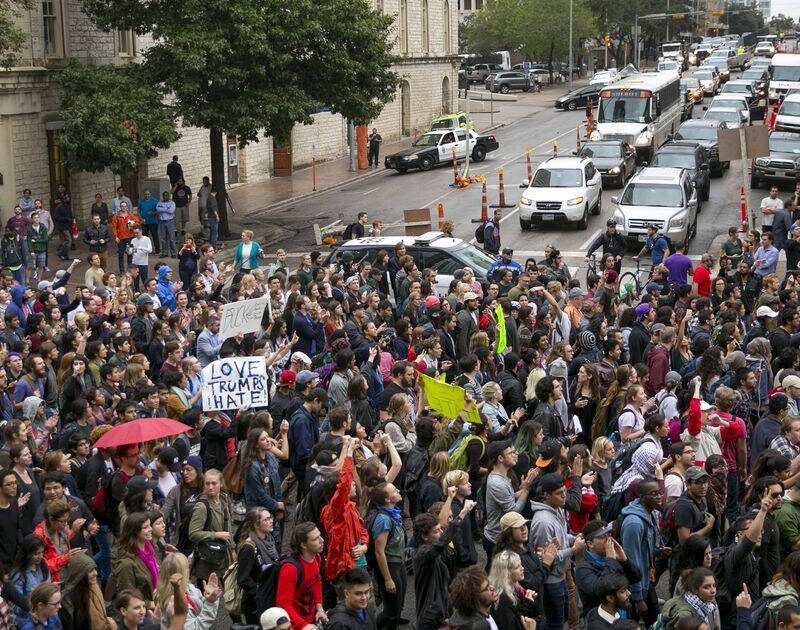
The United States is a nation of Christians. As such, any citizen should be willing to sit through a Christian invocation or prayer in order to engage in the civic process. That is the ultimate conclusion from Justice Kennedy’s opinion in Town of Greece v. Galloway. While Justice Kennedy, a practicing Catholic, may view this as an acceptable outcome, as a non-Christian, I am significantly more concerned. From my own experience as a religious minority, I have witnessed firsthand the alienating effect of publicly imposed sectarian messages.

Justice Kennedy, Author of the Majority opinion in Town of Greece v. Galloway. Photo courtesy of the U.S. Supreme Court.
Growing up Hindu in heavily Christian Texas, I did not lack reminders that I was different. Between well-meaning classmates urging me to save my soul and the Fellowship of Christian Athletes’ monopoly over much of student life (the non-Christian athletes clearly did not need fellowship), I was consistently taught that being Hindu was something to be abandoned, not celebrated. However, the behavior of my classmates never rankled as much as the public embrace of Christianity by the Texas state government. Our Governor proclaimed that non-Christians were destined for Hell, while state legislators trumpeted their commitment to bringing prayer into schools. My own school, while public and home to a wide diversity of religious identities, invited Christian speakers to come speak to students about the power of God’s love and how it could help conquer everything from drugs to premarital sex.
I doubt that any of the speakers involved intended to be insensitive or malicious. Nevertheless, the cumulative effect of even benign impositions of faith was to make me, a non-Christian, feel like I didn’t belong. With every school event that included a prayer “in Jesus’ name,” I internalized that the way I prayed was wrong. Everytime I heard a state leader refer to the Constitution as being based in the Bible, I wondered if the principles of American government were alien to non-Christians. Despite being an American citizen, I felt like an outsider. It is this point that Justice Kagan, herself Jewish, made so eloquently in her dissenting opinion.
“[Sectarian prayers] express beliefs that are fundamental to some, foreign to others-and because that is so they carry the ever-present potential to both exclude and divide.”
Unfortunately, regardless of good intentions, government-sanctioned sectarian prayers will ultimately equal government-sanctioned Christian prayers. We continue to live in a country where Christian principles are extolled and celebrated, while religious minorities often face derision and contempt.
Take the opening invocation before the U.S. Senate given by Rajan Zed, a Hindu cleric and interfaith leader in Nevada. On July 12, 2007, Zed was barely a few words into his prayer when he was interrupted by protesters shouting Bible verses. A Hindu prayer has never been offered before the Senate since.
Or take the decision by Arizona State Rep. Juan Mendez to offer a respectful non-religious speech in the place of an invocation. This gesture drew derision from Rep. Steve Smith, a Christian, who declared the next day’s prayer to be one “in penitence” after Rep. Mendez’s actions. The message to agnostics and atheists is once again clear: your views are not respected or encouraged.
Additional examples of hostility to religious minorities abound: whether it is the condemnation that Rep. Keith Ellison received for taking his oath of office on a Koran (originally belonging to Thomas Jefferson); or the Chief Justice of Alabama declaring that non-Christians cannot expect any protection under the First Amendment; or Senate candidates in Iowa declaring that all federal judges must be willing to follow Biblical law. The Supervisor of the Board of Supervisors of Roanoke County has already stated that non-Christian prayers will not be welcome at meetings. In such an environment, it is unlikely that religious minorities will seek and receive any meaningful representation among the sectarian prayers being offered.
None of this is to say that Christians should not express their faith in public or that the government must maintain some kind of sanitized atheism. However, public figures seeking to impose sectarian prayer would be wise to understand its divisive potential. Just because local governments can incorporate sectarian prayer doesn’t mean they should.
After all, we may be a nation of Christians, but we are also a nation of Hindus, Sikhs, Muslims, Buddhists, Jews, Agnostics, Atheists, and many other faith groups. Do we really want a government where religious minorities must subject themselves to sectarian prayer in order to participate? How many will choose not to participate in the process at all? It is our government’s responsibility to treat all citizens equally, regardless of their religious affiliation. No one should have to feel the alienation that I did.
For more information, please see the Hindu American’s Foundation’s statement.









































